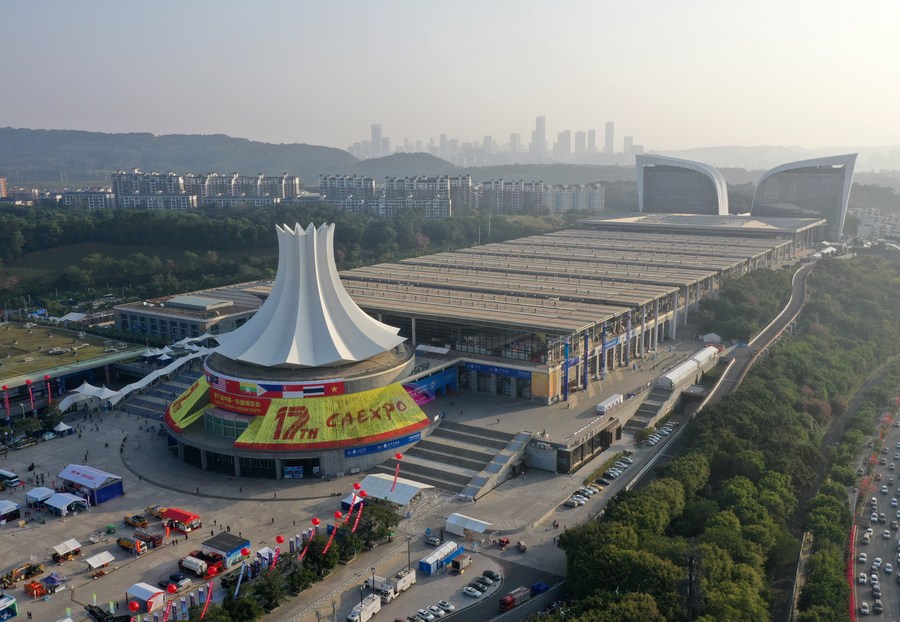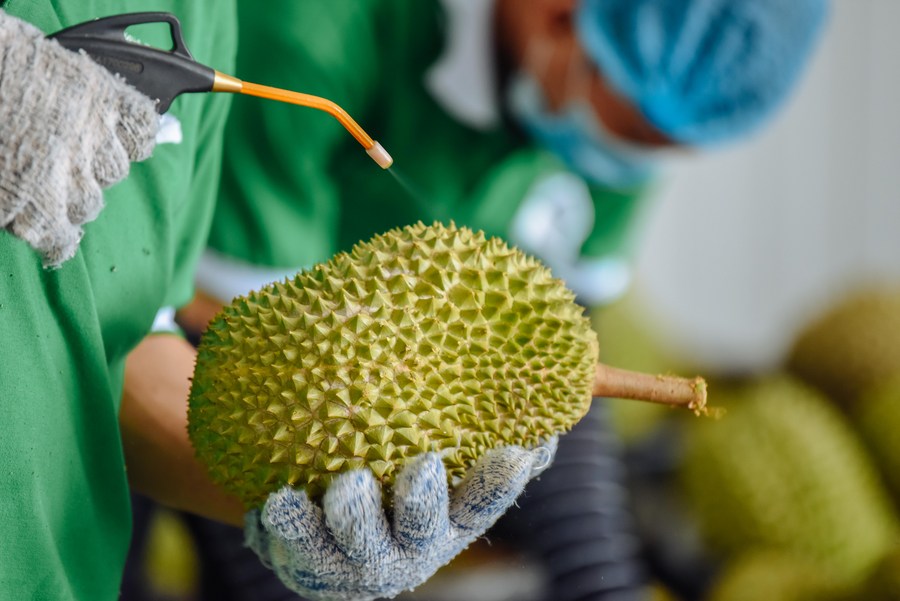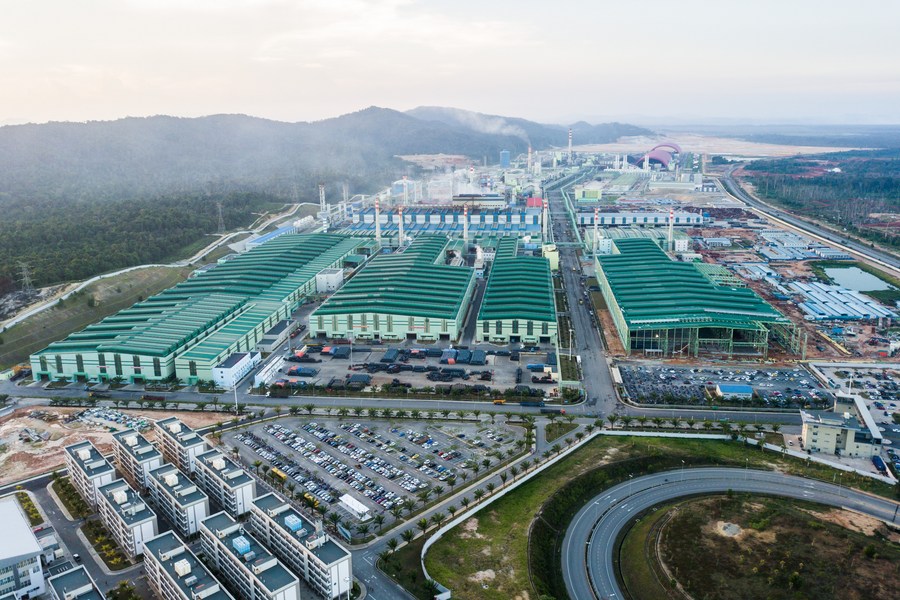
Aerial photo taken on Nov. 30, 2020 shows a view of the Nanning International Convention and Exhibition Center and its neighboring buildings in Nanning, south China's Guangxi Zhuang Autonomous Region. The 17th China-ASEAN Expo and the concurrent China-ASEAN Business and Investment Summit concluded in Nanning on Nov. 30, 2020. (Xinhua/Lu Boan)
RCEP would also help unlock the huge potential of ASEAN and inject fresh impetus to the economic cooperation between ASEAN and China, and Malaysia as an ASEAN member could expect closer ties with China, said Ong Tee Keat, founding chairman of the Center for New Inclusive Asia, a think tank based in Kuala Lumpur.
KUALA LUMPUR, Dec. 3 (Xinhua) -- Closer cooperation among Association of Southeast Asian Nations (ASEAN) and China, fostered by the Belt and Road Initiative (BRI) and the Regional Comprehensive Economic Partnership (RCEP) agreement, among others, would contribute to the world economic recovery in the post COVID-19 era, said a Malaysian expert.
"As the world is seeking an economic recovery, the cooperation and interaction between China and ASEAN is now even more important," said Ong Tee Keat, founding chairman of the Center for New Inclusive Asia, a think tank based in Kuala Lumpur.
In a recent interview with Xinhua, Ong welcomed China's position that the country continues to regard ASEAN as a priority in its neighborhood diplomacy and a key region in high-quality Belt and Road cooperation. He also pointed out that trade and investment between China and ASEAN have bucked the trend to continue on a growth trajectory, as both sides have become each other's largest trading partner.
The signing of RCEP came at a time when unilateralism is on the rise in many parts of the world, said Ong, adding that the agreement would foster further regional cooperation, allow the participating economies to jointly explore larger and more open markets, hence contribute to the post-pandemic recovery.

A worker cleans a durian at a durian processing factory in Pahang, Malaysia, June 18, 2019. (Xinhua/Zhu Wei)
RCEP would also help unlock the huge potential of ASEAN and inject fresh impetus to the economic cooperation between ASEAN and China, and Malaysia as an ASEAN member could expect closer ties with China, he said.
"Digital economy is an indispensable part of the post-pandemic economy and could be a focus for the bilateral economic cooperation between Malaysia and China. Malaysia could bring in the advanced technology from China to cater to our need in developing our digital economy," said Ong.
He hopes China could strengthen cooperation in areas like artificial intelligence (AI), cloud computing, drones, among others, through technology transfer and sharing with Malaysia.

Aerial photo taken on April 15, 2019 shows the Alliance Steel at the Malaysia-China Kuantan Industrial Park in Pahang, Malaysia. (Xinhua/Zhu Wei)
The friendship between China and ASEAN has deepened as both sides have come to each other's assistance in facing the COVID-19 pandemic, which has also provided opportunities to deepen cooperation in health and digital economy, said Ong, stressing that such cooperation not only helped China and ASEAN jointly contain the pandemic but also laid the ground work for economic recovery and further cooperation.
As China accelerates the establishment of a "dual circulation" development pattern which takes the domestic market as the mainstay while letting domestic and foreign markets boost each other, ASEAN is set to benefit, according to Ong.
"Following a roadmap for future in-depth cooperation, China and ASEAN is on course to a closer community with a shared future," he said. ■



